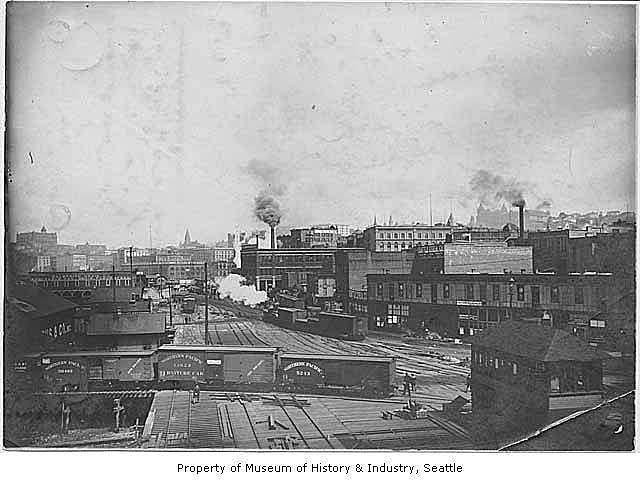Henry Smith, who gave his name to Seattle’s Smith Cove, belatedly recorded Chief Seattle’s famous 1855 speech at the Point Elliott Treaty site (Edmonds) to Gov. Isaac I. Stevens as follows: “At night, when the streets of your cities and villages will be silent and you think them deserted, they will throng with the returning hosts that once filled and still love this beautiful land.”
The Duwamish people, Seattle’s first human residents, were related to the neighboring Suquamish, Puyallup, Snohomish, and others. Chief Sealth (Seattle), who reluctantly gave his name to a future Puget Sound metropolis, may have been right when he warned of his people’s spirits hovering among today’s busy city dwellers.
Duwamish artifacts are occasionally found along the banks of the Duwamish River. Construction projects are held up while archeologists probe likely Native sites. Native myths and jargon have found their way into current usage. Story-telling, a Native tradition, is featured at local museums, schools, and festivals. The Duwamish “hosts” that the old sachem described, hover and may have returned tenfold.
Let’s recollect a few Seattle sites that still belong to the Duwamish people. For example, Shilshole Bay, Native for “shoving a thread through a bead,” describes Ballard’s Salmon Bay and the tides that used to sweep inland at that site. Licton Springs in north Seattle derives from the Native words meaning “face paint,” or the red oxide that bubbles from the ground. The crossroads at Seattle’s First Avenue and Yesler, Pioneer Square, was known as “Little Crossing-Over Place,” a Duwamish winter village consisting of longhouses sheltering 200 people who fished for flounder, dug clams, and hunted the nearby woods.
Near West Seattle’s Fauntleroy ferry dock is a large boulder that the Duwamish believed was at one time a horned monster. Due east of that monolith is Sba-batil,” or the “Little Mountain,” believed by the Duwamish to have been the center of the world. Despite the presence of great mythic spirits, that prominence is now occupied by a golf and country club.
In these ways the Duwamish people, their friends, enemies, monsters, ghosts, and legends remain among the living. Or as Chief Sealth allegedly said, “The white man will never be alone.”
Discover more from Post Alley
Subscribe to get the latest posts sent to your email.
